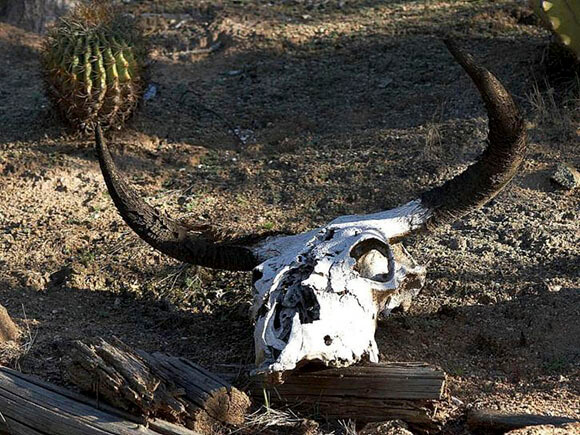Dealing With Trauma: a Resource for Grieving Families

We considered writing a catchy title for this article. Something along the lines of “Five Ways to Cope With Surprise Grief”, but dealing with trauma, especially pertaining to the death of a loved one, is never a fun experience.
Unfortunately, the nature of our business here at National Crime Scene Cleanup means that we deal with shocked, grieving family members on a daily basis. The normal grief associated with a death in the family can be exacerbated to extreme levels when someone’s passing was unexpected.
At risk of sounding like a Debbie-Downer, we’ll provide you with clear facts and resources you can actually use. No jazzy internet-fluff.
With this article we’re hoping to provide families with resources you can use to help move on after a traumatic death. We also want you to understand how grieving after a trauma can be different.
It’s important to note that every person is an individual, and every grief experience is unique. It’s just as important for family members to know that you are not alone. Here are some tools that might help.
Lifeline: The National Suicide Prevention Hotline – 1-800-273-8255
If you have considered suicide, know that somebody is ready to help you right now. If you’re considering harming yourself PLEASE CALL THEM NOW. The National Suicide Prevention Lifeline is available around the clock, at all hours. Don’t add to the downward spiral of grief by harming yourself; suicide awareness and prevention can help save lives.
- The National Suicide Prevention Lifeline service is free and confidential.
- The call is anonymous. No one will ever know that you called.
The Five Stages of Grief
The five stages of grief after a death (or major change) are largely accepted as:
- Denial
- Anger (or Blame)
- Bargaining
- Depression
- Acceptance
You can learn more about these stages at grief.com.
If you’re struggling to accept the death of a friend or loved one because you were unable to view the body, or if you’ve been waiting on identification from the coroner, it can feel like the grieving process hasn’t even begun.
 On Grief, Going Beyond Death and Stages
On Grief, Going Beyond Death and Stages
When a traumatic death occurs, the grieving process doesn’t start off simply. It can feel confusing, drawn out, and even surreal, especially when the crime scene is your property where you live or work. The grieving process can vary greatly from one situation to the next.
Denial – it’s different for traumatic deaths.
During an “unattended death” situation, friends and family members are shocked and surprised, and rightly so! Some folks experience difficult periods of denial if they were unable to identify a person visually. Others struggle through a weird sort of limbo, unable to move forward through their grieving process without upholding family funeral traditions, while their loved one’s remains are kept at a coroner’s office for an extended period of time.
- Closure seems elusive when certified copies of death certificates are unavailable, or while that all-important “Cause of Death” box says “pending” on the death certificate.
Know that almost every single family of a traumatic death situation experiences these same feelings and challenges. You are not alone! No higher power is trying to punish you, or your family, by putting you in this incredibly difficult situation.
Anger or Blame – also a different experience.
Once through an exhausting period of denial, when family members can finally believe that it really is their loved one who has passed away, the second phase of grief begins. However, this stage of dealing with trauma is different too, because anger and blame may be placed on living criminals or on the deceased specifically, with a serious vengeance.
- It feels very different to blame your beloved family member for their death, or to blame a specific criminal with a name and a face, rather than blaming a vague disease, like “cancer”.
For the families of “found” cases, we should recognize another step in the grief process: Forgiveness.
When coping with a shocking death, families get tied up in anger and resentment. They may be angry with their loved one who has passed, angry with a criminal, or angry with a concept – like the existence of drug addiction and dependency, for instance. It may be years, even decades, before the family will forgive whoever (or whatever) they blame for a family member’s death.
The American Counseling Association (ACA) publishes a variety of resources for grieving families. If you need help understanding your emotions, or the feelings of those around you, the ACA provides a host of valuable topics.
Resources for Grieving Children
The loss of a parent to trauma is devastating for children. We find this ACA article especially helpful when speaking to children and adolescent family members. Your local library and family funeral home may also have a selection of children’s books available which can help you explain death to a youngster, in words and terms that they can better understand and cope with.
- We found a list of 64 children’s books about death, you can order them online.
Our Role
At National Crime Scene Cleanup, our role isn’t exactly counseling families on how to deal with trauma. We’re here to provide death cleanup, blood cleanup, and suicide cleanup services. Our organization exists to make this incredibly difficult time just that much easier for families. Contact us if you need help with these issues after a trauma, most cases are fully covered by homeowners insurance.
We staff our phones 24 hours a day, and can have a crew out to you ASAP, nationwide.


 On Grief, Going Beyond Death and Stages
On Grief, Going Beyond Death and Stages

